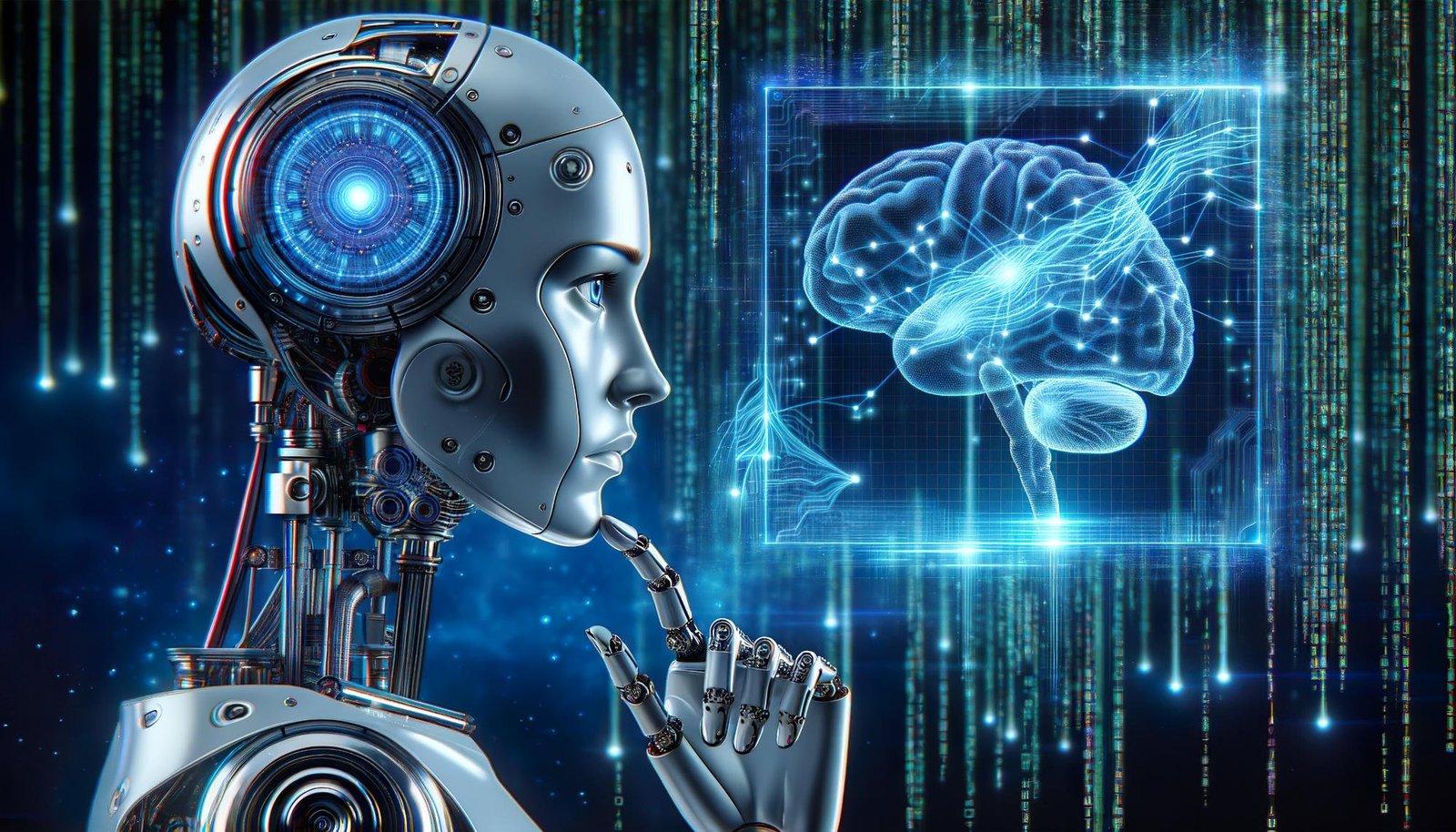In the fast-paced digital era, one term that continues to dominate headlines and ignite discussions is AI, short for Artificial Intelligence. From voice assistants in smartphones to advanced algorithms driving autonomous vehicles, AI is no longer a concept of the future—it is our present reality. Its influence spans across industries, from healthcare and education to finance and entertainment, making it a game-changer in how we live, work, and think.
What is AI?
AI refers to the simulation of human intelligence in machines that are programmed to think, learn, and make decisions. These machines can perform tasks that typically require human cognition, such as recognizing speech, understanding natural language, identifying images, and making predictions. The main goal of AI is to create systems that can operate independently, solve complex problems, and even improve themselves over time through machine learning.

The Evolution of AI
The journey of AI began in the 1950s with the goal of building machines that could mimic human intelligence. Early developments were limited by computing power and lack of data. However, the 21st century brought about unprecedented advancements in processing capabilities, cloud computing, and access to big data, all of which fueled the explosive growth of AI.
Today, we have AI systems that can write music, compose articles, beat humans at chess and Go, and even diagnose diseases more accurately than some doctors. The exponential growth of AI technologies has marked the beginning of what many experts call the Fourth Industrial Revolution.
AI in Everyday Life
You may not realize it, but you interact with AI multiple times a day. When you ask Siri or Google Assistant a question, stream personalized content on Netflix, or get shopping suggestions on Amazon, you are experiencing AI in action. These systems analyze your behavior and preferences to deliver customized services that enhance user experience.
In transportation, AI is the backbone of autonomous vehicles and smart traffic systems that optimize routes and reduce congestion. In finance, AI algorithms detect fraud, assess creditworthiness, and manage investments. In short, AI has woven itself into the fabric of daily life.
AI in Healthcare
One of the most impactful applications of AI is in the field of healthcare. From early diagnosis to robotic surgery, AI is revolutionizing how medical professionals treat and manage diseases. For instance, AI can analyze thousands of radiology images in seconds, highlighting areas that may require further attention. It also helps in drug discovery, predicting disease outbreaks, and personalizing treatment plans based on patient data.
AI-powered chatbots are being used to provide mental health support and answer patients’ questions in real time. With the ability to work 24/7 without fatigue, AI tools are becoming valuable allies to medical professionals around the globe.
AI in Education
The education sector is also experiencing a transformation thanks to AI. Intelligent tutoring systems can provide personalized learning experiences, identifying a student’s strengths and weaknesses. AI can automate administrative tasks like grading, freeing up educators to focus more on teaching.
Moreover, language translation tools powered by AI make it easier for students across the world to access information in different languages. With the help of AI, education is becoming more inclusive and accessible than ever before.
Ethical Concerns and Challenges
Despite its benefits, the rise of AI brings significant ethical concerns. Questions about data privacy, surveillance, job displacement, and algorithmic bias are at the forefront of public debate. As AI systems become more powerful, ensuring that they are used responsibly is essential.
Another major concern is the “black box” nature of some AI algorithms. In many cases, even developers can’t fully explain how an AI system arrived at a specific decision. This lack of transparency makes it difficult to trust AI in high-stakes situations like criminal justice or loan approvals.
To address these issues, many organizations are calling for greater AI regulation, transparency, and the development of ethical AI frameworks.
The Future of AI
The future of AI is filled with possibilities. As quantum computing and neuromorphic chips become more advanced, AI will only become more powerful and efficient. We may see AI doctors that can perform remote surgeries with pinpoint precision or AI teachers that adapt to every student’s unique learning style.
However, the future of AI also depends on how we choose to develop and implement these technologies. With the right governance and ethical standards in place, AI can be a force for immense good.
AI and Job Markets
One of the most debated topics around AI is its impact on employment. While AI will undoubtedly automate many routine and repetitive tasks, it will also create new job opportunities that require creativity, emotional intelligence, and complex problem-solving—skills that machines have yet to master.
To stay relevant in an AI-driven economy, the workforce must adapt by learning new skills. Governments, businesses, and educational institutions must work together to ensure that people are prepared for the jobs of the future.
Why AI Matters
So, why does AI matter? Simply put, it holds the potential to solve some of the world’s most pressing challenges—from climate change and disease management to food security and education. But with great power comes great responsibility. It’s up to us to harness the capabilities of AI in a way that benefits humanity as a whole.
Conclusion
The rise of AI is more than just a technological trend—it’s a profound shift in how we live, think, and interact with the world around us. As we navigate this transformation, it is crucial to ensure that AI is developed and used ethically, inclusively, and sustainably.
Whether you are a student, a business leader, or simply a curious individual, understanding AI is essential in today’s world. The future is being shaped by AI, and the time to engage with it is now. The AI revolution is here—are you ready?

No Responses